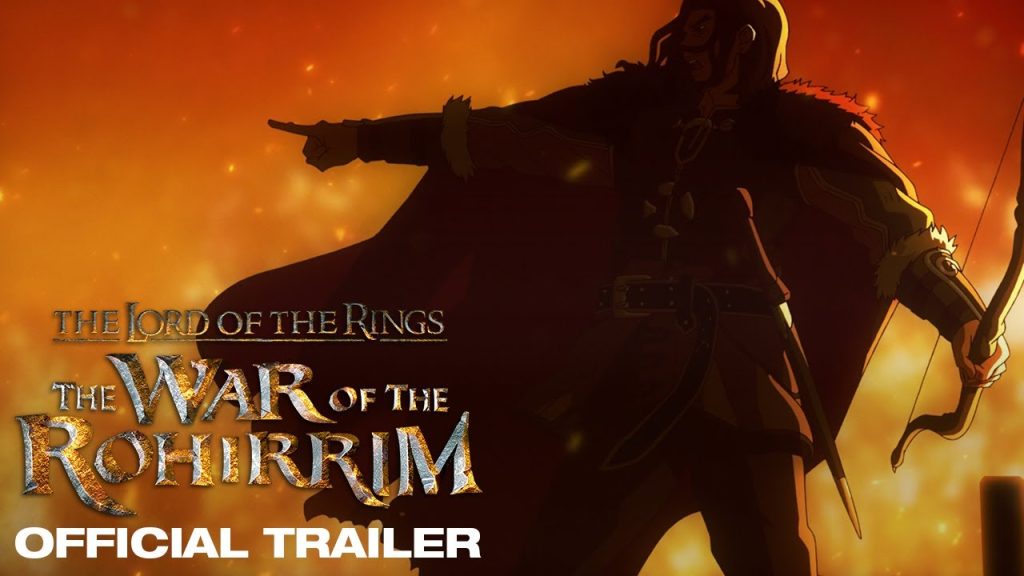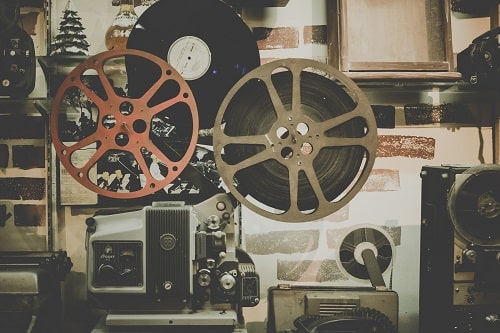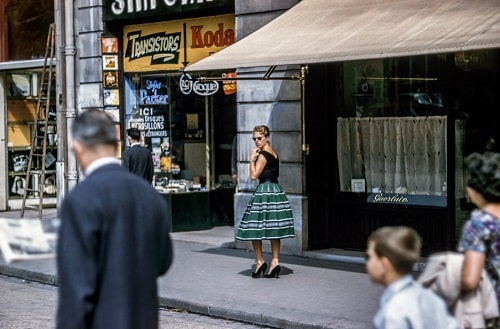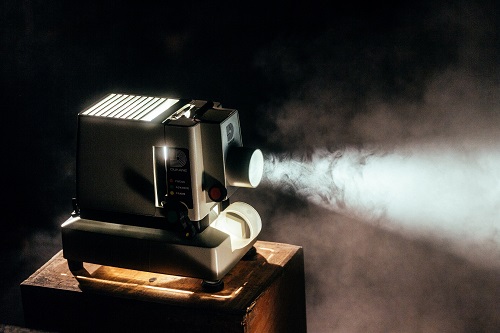In recent years, a surge of diversity initiatives has been implemented across numerous sectors in the United States, with the aim of achieving greater representation of racial and gender minorities. This progressive shift is occurring within various industries and fields, from government to technology to finance, with many organizations taking strides to ensure that their workforce reflects the demographics of society as a whole. Such action is not only intended to increase diversity within these sectors but also foster an environment where everyone can thrive.
The film industry is not exempt from the shift towards greater diversity: according to a report from the University of California at Los Angeles, films featuring casts that were 50% or more minority race or gender increased by an impressive 17.8% between 2011 and 2021 in Hollywood. This indicates a positive trend towards creating more inclusive and representative stories on-screen.
Junior Shubham Jain has observed the palpable effect of this ongoing social revolution on the Marvel Cinematic Universe in particular. He remarked that he has been able to recognize a clear change, and believes that it will help shape the cinematic universe moving forward.
When the Marvel Cinematic Universe (MCU) was first unveiled, racial and gender diversity wasn’t as much of an emphasis as it is today. However, according to Jain, the MCU has become increasingly more receptive to this issue. This shift in focus can be attributed to recent events such as the Black Lives Matter movement that have brought greater attention to diversity and its importance. The MCU has embraced this change by striving for a more diverse cast and crew within their franchise.
The Marvel Cinematic Universe (MCU) is an incredibly successful American media franchise, which has been inspired by a range of superheroes from Marvel Comics. Since its inception in 2008, the MCU has produced 25 remarkable superhero genre films and 16 awe-inspiring TV shows – many of which have become smash hits at the box office, having generated almost a billion dollars in revenue.
The Marvel Cinematic Universe (MCU) has become the top-grossing global superhero franchise over the past 13 years, leaving a lasting impact on the American film industry. Yet, despite its immense success and acclaim, senior Jia Desai believes there is still much to be desired when it comes to minority representation in MCU films. While strides have been made in recent years, she argues that more should be done to ensure that characters of all backgrounds can see themselves represented on screen.
When discussing the Marvel Cinematic Universe (MCU), Dr. Desai noted that if you look at the first Avengers movie as an example, it is clear that there was a majority of white superheroes featured and only one female character present. As a young person, this racial and gender disparity was difficult to identify; however, it speaks volumes about the lack of diversity in the MCU at that time.
As my generation and I are maturing, we are beginning to recognize the prejudiced [ideologies] that have been perpetuated over time surrounding race and gender. We can now observe the discrimination that has been experienced by many due to their skin color or gender identity in the past, which is something our predecessors were unable to fully acknowledge. This newfound awareness provides us with an opportunity to make a difference in how future generations will perceive these issues.
A comprehensive study carried out by Brigham Young University revealed that in 2021, the percentage of female characters featured in the Marvel Cinematic Universe (MCU) was only 6.7%. Furthermore, Forbes reported that up until 2018, a staggering 61% of superheroes portrayed in MCU movies were white. This is an alarming statistic which highlights the need for better representation among major movie franchises like the MCU.
Sophomore Allison Lin has expressed her frustration towards the Marvel Cinematic Universe for its lack of racial and cultural representation, which she believes has had a detrimental effect on its younger audience. She insists that this deficiency in diversity is something that needs to be urgently addressed in order to ensure that all viewers are able to identify with the characters they see onscreen and avoid becoming alienated by them.
Due to the dearth of variety, young children from different cultural and racial backgrounds did not get the opportunity to feel like they belonged in [the MCU], according to what Lin said. These youth were deprived of experiencing a feeling of inclusion in this Marvel Cinematic Universe, which caused them to be relegated to the sidelines.
If the kids desired to dress up for Halloween, there were few superheroes that represented their skin color, so they had to resort to wearing a blond wig or any other costume items which would not make them feel like themselves. This situation makes it difficult for them to have an enjoyable and meaningful experience on Halloween night since they are unable to completely express themselves through their costumes.
Recently, the Marvel Cinematic Universe (MCU) has made a conscious effort to be more inclusive in terms of cultural, racial, and gender diversity. This was highlighted by Jain in her research into recent MCU films which revealed an encouraging trend towards greater representation of minority groups on screen. In other words, the MCU has taken important steps to create an environment where people from all backgrounds can feel seen and represented.
In 2019, the blockbuster film “Captain Marvel” provided a unique experience to viewers as it featured a female superhero as its lead character. This milestone was followed by 2021’s highly anticipated movie “Black Widow,” which continued to showcase an empowered woman playing the main role in a major motion picture. In the same year of 2021, Marvel Studios’ released yet another groundbreaking cinematic production – “Shang-Chi and the Legend of Ten Rings,” introducing audiences to their first ever Asian protagonist as the primary figure on screen.
“Eternals”, the highly anticipated Marvel Cinematic Universe (MCU) installment slated for release on November 5, will make history by introducing a number of groundbreaking characters. Most notably, the film features an openly gay character as well as the MCU’s first deaf superhero – both of which are significant milestones in terms of representation and inclusion within the franchise.
The star-studded cast of Marvel’s upcoming movie “Eternals” includes ten diverse actors from various ethnic backgrounds including Black, Asian and Hispanic. This notable representation is especially meaningful to actor, Gemma Chan, who expresses her delight in the increasing number of minority roles appearing in recent films. For her personally, it carries a great deal of significance knowing that these characters are being seen on screens all around the world.
It was an incredible experience for me and my family to watch the film ‘Shang-Chi’, and be able to draw parallels between our own upbringing and that of the characters. The anticipation I felt going into it was tremendous. However, with ‘Eternals’ I think there is a real potential for us to open up a dialogue surrounding LGBTQ themes within my family, which would serve as a great normalizing factor.
Recent remarks and initiatives taken by MCU staff members and performers have suggested that there may be a rise in the diversity of representation within the Marvel Cinematic Universe. These comments and actions, which have been made in recent times, seem to point towards an increased presence of minorities in future films and television shows produced by MCU. The move could be seen as a step forward for inclusion in the entertainment industry, paving the way for greater representation of all voices on screen.
At the world premiere of the highly-anticipated Marvel movie “Eternals” on October 19th, Kevin Feige, the president of Marvel Studios, gave an interview in which he announced that there have been LGBTQ+ superheroes featured in their comic books for some time now. He went on to say that these characters will be making an appearance in their films soon as well. This exciting news marks a huge step forward for representation and diversity within the Marvel Cinematic Universe.
It is more than past time that the Marvel Cinematic Universe (MCU) started including more minority characters in their films, and the upcoming movie “Eternals” is just the beginning. Kevin Feige, President of Marvel Studios, has promised to make this change happen, and according to Lin-Manuel Miranda – a celebrated writer, actor and composer – these efforts will bring about an incredibly positive transformation for the franchise.
I’m eagerly anticipating Fiege’s plan because I’m positive it will completely alter the MCU. I must admit that I feel a little frustrated that they didn’t initiate this concept sooner, considering diversity has been a contentious topic for an extensive period of time, but I’m delighted with the fact that they are finally implementing it.
However, if this is only the beginning of a change for Marvel Cinematic Universe (MCU), then I am hopeful that they will continue to strive forward and bring about more meaningful representation in their movies. By doing so, not only will this empower individuals from minority groups, but it can also create an inspiring environment filled with stories of courage and strength.
Avengers: Endgame, released in 2019, was met with criticism due to the introduction of the first openly gay character in the Marvel Cinematic Universe. This character, played by Joe Russo, had an exceptionally brief presence onscreen, as he was given only ten seconds of screentime; a clear disappointment for many who were expecting greater representation and acknowledgement of LGBTQ+ individuals within the MCU. This minor role caused widespread backlash from fans all over the world.
Jain is in favour of the proposal to improve the presence of gender minorities within the MCU, however he recommends that they should move forward cautiously and with great care. He understands that this plan could be a major step towards greater diversity but believes it must be undertaken slowly and thoughtfully in order to ensure its success.
Jain argued that Marvel should be mindful of the balance between representing racial and gender diversity and appearing to do so for financial or reputational gain. According to Jain, instead of overdoing it in an effort to appear progressive, Marvel should treat minority characters with normalcy and not as a box-ticking exercise.
Desai is of the opinion that although the Marvel Cinematic Universe’s journey to inclusivity will not be instantaneous, it will eventually prove advantageous for the entire franchise. This shift towards diversity has the potential to bring about an array of positive outcomes and result in a much more inclusive landscape.
In the past, there was only a single, unambiguous racial and gender group that was depicted as heroes in popular media. However, times have changed and Marvel has taken steps to show this by acknowledging that transformation is necessary. This endeavor of theirs is something that Desai truly appreciates since it brings about diversity and inclusion into their stories.
I am optimistic that in the future, movies will provide a sense of hope and inspiration to those belonging to different races, gender identities, and sexual orientations. This is because I think it’s important for people of all backgrounds to see themselves represented on screen. It gives them the assurance that they too can be heroes and can make an impact on society. Representation matters and I feel like showing LGBTQ+ characters as well as people of color in heroic roles will empower these communities and give them a chance to be celebrated.



 RELATED POSTS
RELATED POSTS





0 Comments